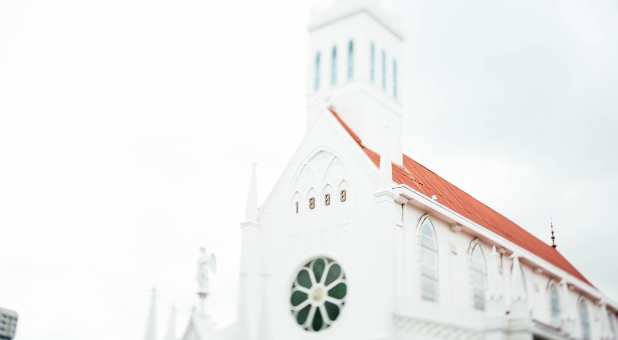Liberty Counsel: Maine Governor Cannot Assign Churches Second-Class Status
Liberty Counsel filed the reply brief to the First Circuit Court of Appeals regarding Calvary Chapel of Bangor’s appeal in the lawsuit against Governor Janet Mills’ unconstitutional orders against churches. Under the governor’s challenged orders when the complaint was filed, no religious gatherings were permitted, including parking lot services.
Under the orders, the church can hold secular but not religious meetings. The church can feed, shelter and provide social services to an unlimited number of people, but religious services are severely limited in the same building where non-religious services can be held.
Gov. Mills said that churches will only be allowed to meet in small numbers when she is satisfied with the “metrics,” and when that happens, she will require churches to apply to reopen. Approved churches would then need to display a “badge” at the front door signifying they are approved to open. However, Gov. Mills has no process in place to begin the approval process and no application for the churches. Even the notion that churches would have to apply to reopen and display a “badge” signifying approval is offensive to the First Amendment.
So-called “essential” commercial and nonreligious entities that include liquor stores, marijuana dispensaries, warehouse clubs, “big box” and “supercenter” stores that accommodate gatherings of people are currently allowed without threat of criminal sanctions. People may gather in these venues but not in churches. The governor’s orders also allow people to gather in secular or commercial parking lots, but not in church parking lots to listen to a pastor.
Liberty Counsel Founder and Chairman Mat Staver said, “The First Amendment does not have a pandemic pause button. Churches are even more essential during this time when people need the community and spiritual support that only churches offer. Houses of worship have special protections under the First Amendment, and Governor Mills cannot favor commercial businesses while relegating churches to second-class status.” {eoa}
This article originally appeared at lc.org.
















































